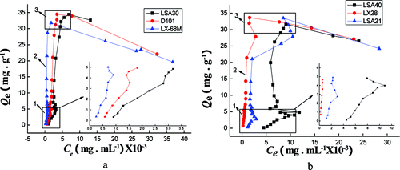New progress in the research on the selective adsorption mechanism of macroporous adsorption resins (MARs) to flavonoids from Natural Products was made by the research group headed by Prof. DI Duolong of the Key Laboratory of Chemistry of Northwestern Plant Resources of the CAS, Lanzhou Institute of Chemical Physics (LICP), CAS.
The adsorption feature of different kinds of polystyrene-based MARs was investigated systemically by employing Rutin as the adsorbate. Experimental results verified the hypothesis that the adsorption process of MARs pass through three stages--smacropores, mesopores and micropores accompanyingthe capillary effects at the two alternant stages as described above. The adsorption feature for every stage could be ascribed to the fourth type of Brunauer model.Further investigation showed that the adsorption driving force mainly sourced from the surplus valence bonding force of active locus, and the inductive effect of active locus transmitted to the third layer. With the increase of adsorption layer, the inductive effect would decrease regularly and disappear after transmitted to the third layer.The work is of significance for the further research on the adsorptive separation theory of MARs.

The adsorption isotherm of Rutin on MARs
The work has been supported by the National Natural Science Foundation of China . The research result was published in the recent issue of Journal of Physical Chemistry: Part B (J. Phys. Chem. B 2010, 114, 4841–4853).


